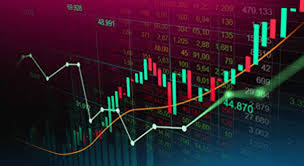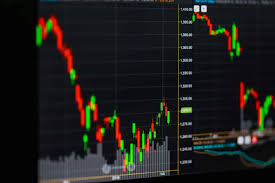
The Ultimate Guide to Forex Trading Brokers
In the world of finance, Forex trading has gained immense popularity, attracting millions of traders worldwide. An essential part of successful Forex trading is selecting a reliable and efficient broker. This guide will delve into the different aspects of Forex trading brokers, highlighting their significance, types, and how to choose the right one for you. For more insights on trading platforms, visit trading brokers forex https://tradingplatform-hk.com/.
Understanding Forex Trading Brokers
A Forex trading broker is a financial service provider that offers traders access to a platform for buying and selling currency pairs. They act as intermediaries between traders and the market, executing trades on behalf of clients. Selecting the right broker can significantly impact your trading success, as they provide leverage, market insights, tools, and customer support.
Types of Forex Brokers
Forex brokers can be categorized into different types based on their trading methodologies and the services they provide. Understanding these types will help you make informed choices.
1. Market Makers
Market makers are brokers that provide liquidity by buying and selling currency pairs themselves. They create a market for traders, quoting both buy and sell prices for currency pairs. Trading with a market maker can offer advantages such as fixed spreads and less volatility. However, it may involve conflicts of interest, as they profit when clients lose.
2. Direct Market Access (DMA) Brokers
DMA brokers offer traders direct access to the interbank market, allowing them to execute their trades without an intermediary. This type of broker typically charges a commission on trades, offering transparency in pricing. DMA brokers are popular among professional traders due to lower spreads and faster execution times.
3. ECN Brokers
Electronic Communication Network (ECN) brokers connect traders directly to other market participants, such as banks and institutional investors. They provide real-time pricing without a dealing desk, allowing traders to see the best prices available. ECN brokers charge a commission on trades rather than marking up the spread, resulting in highly competitive pricing.
4. STP Brokers
Straight Through Processing (STP) brokers automate order execution, passing client orders directly to liquidity providers. STP brokers can offer both fixed and variable spreads, depending on market conditions. They are considered more transparent than market makers because they do not interfere with trades.
Key Features to Consider When Choosing a Forex Broker
When selecting a Forex broker, it’s vital to consider several key features that align with your trading goals and style.
1. Regulatory Compliance
Always check if the broker is regulated by a reputable financial authority, such as the Financial Conduct Authority (FCA) in the UK or the Commodity Futures Trading Commission (CFTC) in the United States. Regulation ensures that brokers operate within a legal framework, providing additional layers of security for your funds.
2. Trading Platform

The trading platform is the interface through which you execute trades and analyze the market. Look for a platform that is user-friendly, reliable, and features various tools such as charting software, market analysis, and indicators. Popular platforms include MetaTrader 4 (MT4) and MetaTrader 5 (MT5).
3. Spreads and Fees
Consider the spreads and commission fees charged by the broker. Lower spreads can lead to higher profitability, especially for day traders who make numerous trades. Ensure you understand all associated fees, including withdrawal and deposit fees, as these can affect your overall trading costs.
4. Customer Support
Reliable customer support is crucial in Forex trading, as issues can arise at any time. Check if the broker offers multiple contact methods, including email, live chat, and phone support. Also, look for the availability of support in your preferred language and their response times.
5. Account Types and Leverage
Different brokers offer various account types with distinct features, including minimum deposit requirements, leverage options, and available instruments for trading. Choose a broker that provides account options suitable for your trading style and risk appetite.
Best Practices for Trading with Brokers
Now that you understand the features to look for in a broker, here are some best practices for trading effectively:
1. Start with a Demo Account
Before trading with real money, consider opening a demo account to familiarize yourself with the broker’s trading platform and test your strategies without risking your capital.
2. Develop a Trading Plan
A well-thought-out trading plan outlines your goals, risk tolerance, and strategies. Stick to your plan to minimize emotional trading and reckless decisions.
3. Keep Learning
The Forex market is continually evolving, so staying informed about market trends and economic factors is essential. Regularly update your knowledge by reading articles, attending webinars, and following expert analysts.
4. Practice Risk Management
Risk management is fundamental in Forex trading. Use stop-loss orders to limit potential losses, never risk more than you can afford to lose, and diversify your investments to spread risk.
Conclusion
Choosing the right Forex broker is a pivotal step in your trading journey. By understanding the different types of brokers, key features to consider, and best trading practices, you can enhance your chances of success in the Forex market. Take your time to research and select a broker that aligns with your trading goals, ensuring a rewarding trading experience.

